Death on the Roads
On a clear day, it takes me three hours to drive back from Gatwick. I'll never forget the fateful day the journey required seven hours. Seven hours stuck in a car with the secretary from Hell. Seven hours listening to her bouncer boyfriend's [allegedly] successful battle against booze, fags, cocaine, speed, angel dust, in-bred in-laws, chronic unemployment, a nasty temper, asthma and a criminal record. The reason for this endless exploration of the existential maxim that "Hell is other people"? They closed the motorway. They closed the M25. There was an accident.
I have no idea how many people died that day, or how they met their Maker. God only knows what horrific scenes greeted the fine men and women of the police, fire department and paramedic squads on that bloody afternoon. I have nothing but respect for those who had to deal with the aftermath. And my heart goes out to all the people— mothers, fathers, daughters, sons, etc.—bereaved by this regrettable tragedy. But did they really have to close the motorway? At the risk of giving politically correct "safety campaigners" an apoplectic fit, why didn't they just shovel the wreckage to one side and let everybody else get on with it?
An accident, no matter how gruesome, should not prevent the rest of the world from going about the important business of moving about. Sure, take the bodies off the road, shroud what must be covered for privacy and decency's sake. Scrub the gas, oil and blood off the pavement. Take a few photographs for the lawyers and the boys at the lab. But for God's sake, keep things moving! While forensic experts spend hours trying to find a cause for the carnage, the economy grinds to a halt. Millions of man-hours are wasted, as stationary motorists do nothing more productive than picking their nose and listening to Chris Tarrant. Meaningless meetings are missed. Over-priced goods aren't delivered. Entire airlines are delayed more than normal. It's a waste of time and resources only a government accountant could fully comprehend.
The physical and psychological toll is staggering. Surprisingly, sitting in an endless traffic jam doesn't trigger so-called "road rage". That's an active state, giving afflicted drivers the opportunity to vent their frustration through violence (which is, after all, a type of movement). A motorway parking lot creates something entirely different: "road impotence". It's a massive stress hit caused by stifling an on-going and instinctive desire to drive in the breakdown lane, throttle your passenger or leave your vehicle and run! The long-term health effects are predictably dire. I'll bet English cardiologists already use the term "motorway closure" for a sales rep's heart disease. How long before we'll see claims for PJSD (Pre-Junction Stress Disorder)?
The only case for motorway closures is safety. Supposedly, closure gives emergency services full and unfettered access to an accident scene. It's an emotionally resonant argument that doesn't withstand serious scrutiny. For one thing, I've never seen a police car, ambulance or fire truck that couldn't fit in the breakdown lane. For another, while no one begrudges the rescue services a safe working environment, how long should it take to clear a road? I've seen a motorway close for two days, and several others that remained shut for over ten hours. How much danger is created by one lane of traffic crawling by the scene? Shouldn't that be balanced against the perils of sending miles of frustrated motorway traffic on a Magical Mystery Tour through tiny villages?
There is an answer: controlled rubbernecking. I'm serious. Push the mangled motors to one side, set-up a proper viewing lane and let my people go! An official drive-by policy would keep the wheels of commerce turning, reduce the drain on NHS resources and improve road safety. Think! about it. The government currently squanders millions on expensive TV spots depicting the aftermath of grisly accidents, or showcasing slow motion pedestrian snuff films. Supposedly, the ads shock drivers into slowing down. A simple sign at the scene of a motorway accident saying, "It could be you!" would be far more effective. And cheaper; the National Lottery could sponsor it.
Don't get me wrong. Motorway fatalities are a serious business. They're sickening and sad and can ruin someone's whole day. (And yes officer, I have seen dead bodies lying in the middle of the road. I'm an American. They don't close motorways.) But the idea that drivers should be shielded from gruesome reality, or that we should be inconvenienced because of some misguided idea of worker safety, is nonsense. This country's economic and mental health depends on a free-flowing motorway network. Everything possible should be done to keep traffic moving—no matter what. And if I should cop it on a motorway, you have my permission scrape my remains to one side and get on with it. Just don't forget to wave.
More by Robert Farago
Latest Car Reviews
Read moreLatest Product Reviews
Read moreRecent Comments
- TheEndlessEnigma These cars were bought and hooned. This is a bomb waiting to go off in an owner's driveway.
- Kwik_Shift_Pro4X Thankfully I don't have to deal with GDI issues in my Frontier. These cleaners should do well for me if I win.
- Theflyersfan Serious answer time...Honda used to stand for excellence in auto engineering. Their first main claim to fame was the CVCC (we don't need a catalytic converter!) engine and it sent from there. Their suspensions, their VTEC engines, slick manual transmissions, even a stowing minivan seat, all theirs. But I think they've been coasting a bit lately. Yes, the Civic Type-R has a powerful small engine, but the Honda of old would have found a way to get more revs out of it and make it feel like an i-VTEC engine of old instead of any old turbo engine that can be found in a multitude of performance small cars. Their 1.5L turbo-4...well...have they ever figured out the oil dilution problems? Very un-Honda-like. Paint issues that still linger. Cheaper feeling interior trim. All things that fly in the face of what Honda once was. The only thing that they seem to have kept have been the sales staff that treat you with utter contempt for daring to walk into their inner sanctum and wanting a deal on something that isn't a bare-bones CR-V. So Honda, beat the rest of your Japanese and Korean rivals, and plug-in hybridize everything. If you want a relatively (in an engineering way) easy way to get ahead of the curve, raise the CAFE score, and have a major point to advertise, and be able to sell to those who can't plug in easily, sell them on something that will get, for example, 35% better mileage, plug in when you get a chance, and drives like a Honda. Bring back some of the engineering skills that Honda once stood for. And then start introducing a portfolio of EVs once people are more comfortable with the idea of plugging in. People seeing that they can easily use an EV for their daily errands with the gas engine never starting will eventually sell them on a future EV because that range anxiety will be lessened. The all EV leap is still a bridge too far, especially as recent sales numbers have shown. Baby steps. That's how you win people over.
- Theflyersfan If this saves (or delays) an expensive carbon brushing off of the valves down the road, I'll take a case. I understand that can be a very expensive bit of scheduled maintenance.
- Zipper69 A Mini should have 2 doors and 4 cylinders and tires the size of dinner plates.All else is puffery.



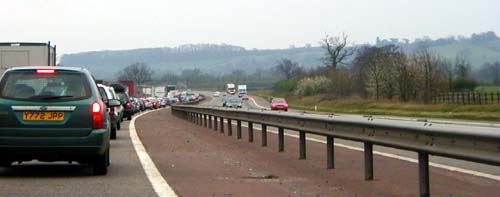
















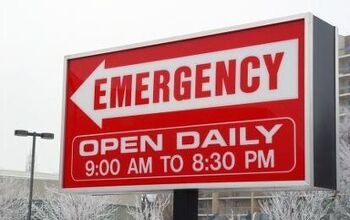

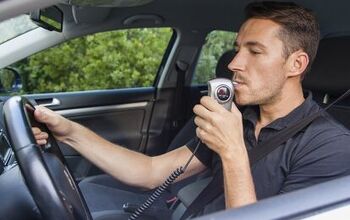
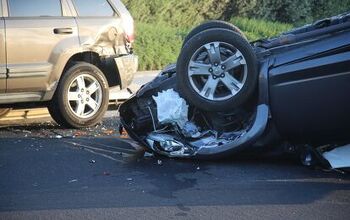










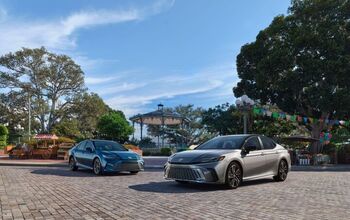
Comments
Join the conversation